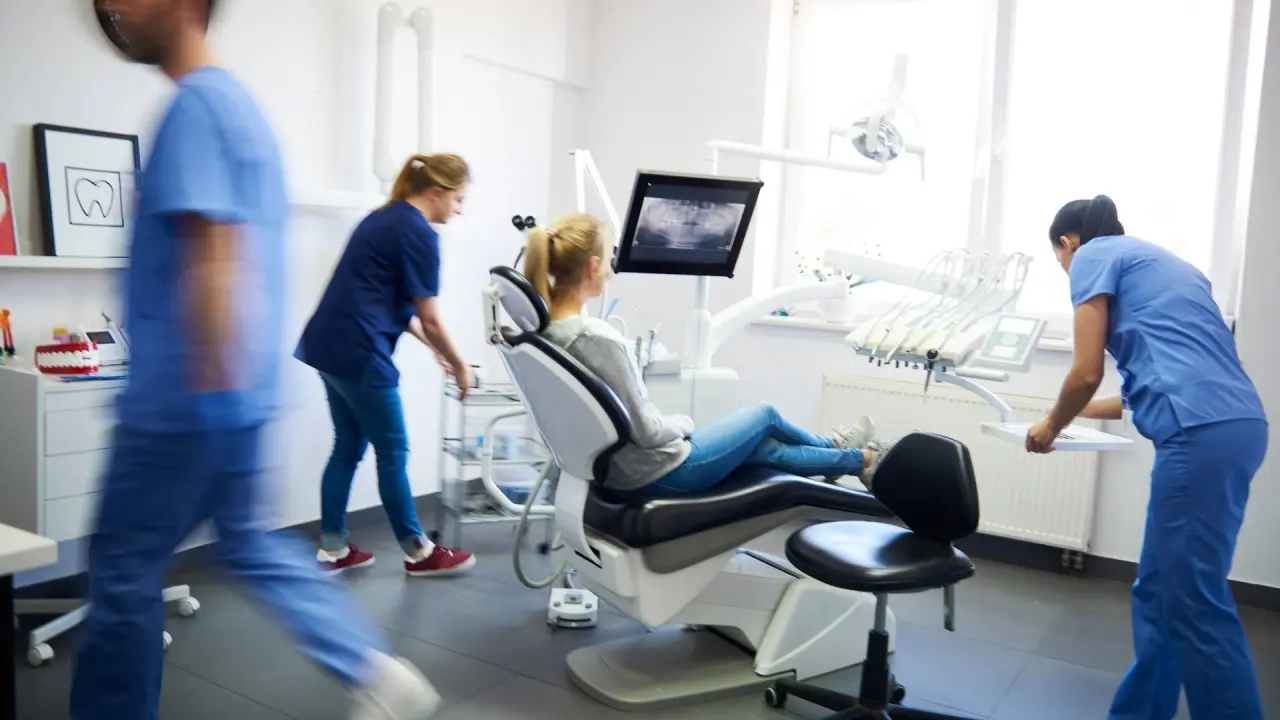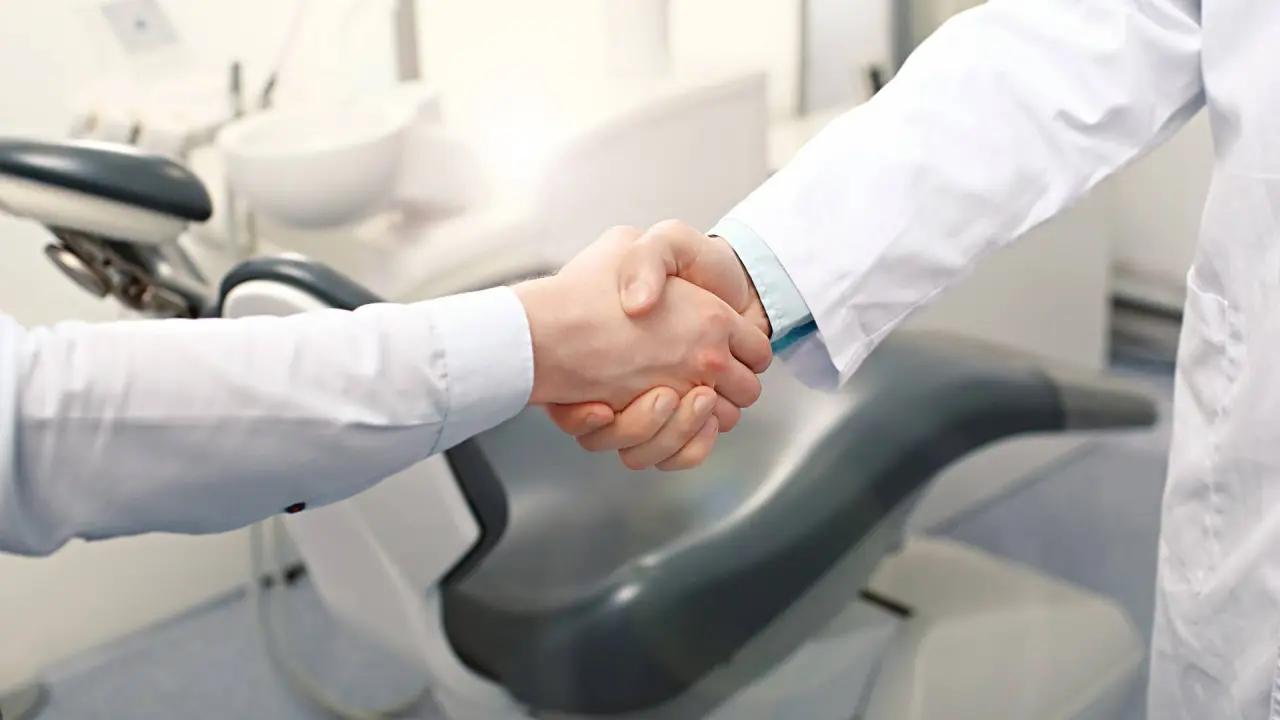
Author: Dr. William J Lossef, DDS | VP of Practice Transitions
Buying a dental practice is a great idea for a variety of reasons. Someone who is just out of school may want to move immediately into working for themselves, and owning a practice will help make that dream come true. If you've been working for someone else for a while and are ready to take the next step in your career, buying an established practice might be easier than starting from scratch. The same is true if you're making a major geographic move: You might be well-established as a dentist in your hometown and want to start off on the same foot in your new location with an established dental office.
When you buy a dental business for sale, you get the benefit of an equipped and functional dental office, money coming in on day one, a roster of existing patients, experienced staff and a business that is already successful. These factors are attractive, especially when compared to the amount of work and time involved in building a startup from nothing.
But the perks of buying a dental practice tend to be better when you take time to make the purchase the right way. Start with our guide below that covers seven important steps to take as you go through the process of buying a dental office.
1. Decide What Type of Dental Practice to Look For

Before you start looking, make sure you know what you want. This helps reduce the risks of bidding on or buying a business that doesn't actually meet your career and professional goals.
Some people want a high fee practice where they see most of the patients; others want an insurance-based practice where it's much easier to get patients to see your associates. Some prefer a large group practice they can own and limit the number of patients they see chairside. Some are willing to pay for a bigger practice that is already doing very well, while yet others will want to start small and build upon what's there themselves.
Seems most young dentists want state of the art facilities that were constructed very recently, but some have a vision to transform an old office into exactly what they dream about and with the equipment of their choice. These preferences obviously matter as you shop for the right practice for you.
Some people know exactly what they want at this point, which makes this step easy. If that's you, take some time to jot down those goals and preferences. Once you start looking at practices or placing bids, things can get fast-paced, and having those goals to guide you can help you stay on course.
Some people don't know exactly what they want. If that's you, start with the location you want to buy a practice in. Do you want to stay in a specific city or are you open to an entire state or geographical region? Obviously, the more flexible you are, the more opportunities you may find.
2. Understand Your Finances and Buying Power

Your next step is determine what you can afford to spend. If you aren’t yet pre-qualified with a bank, that is the best place to start. Getting pre-qualified with a banker who specializes in dental practice acquisitions, relocations , expansions, start-ups or jump-starts is key in acquiring a practice.
Not all banks are the same. Some are better with some than others. At US Dental,we can help connect you with a banker that we think best fits your needs. You can get pre-qualified with any number of banks if the first one doesn't work out. It’s better to talk to a banker who specializes in this type of purchase than it is to walk into your local branch and talk to the general business loan officer who really knows nothing about dental practices. Most dentists can get 100% financing when purchasing a practice. Rates are low, and terms can sometimes extend beyond 10 years.
3. Review Dental Practice Listings

Armed with your goals and an accurate financial picture, you can move on to reviewing dental practice listings. Start with a search right on US Dental Practices — or complete our online contact form to get assistance from an experienced rep on our sales team.
While you're browsing listings and looking at potential dental businesses for sale, keep in mind all of the prep work you did, including your list of preferences and financial needs. This will help you narrow options to the most appropriate practices for your needs. When you see something interesting, you will need to fill out a confidentiality agreement that protects the identity and financial information of the seller.
Some practice brokers charge buyers a fee. At US Dental Practices, there's never a buyer’s fee. Contact us online at here and let us know which practices you would like to receive information about. If you have trouble online, contact the listing agent who can email a word or pdf agreement directly to you.
4. Do Your Due Diligence

Once you've picked a potential practice, it's critical to conduct due diligence to ensure this is the right purchase for you. Below are some of the things to review and consider as you're going through this process with a prospective practice.
Business Financials
Buying a struggling dental practice is different from buying a robust practice that brings in plenty of revenue every year. Neither of these are necessarily poor business decisions, but they completely change what your goals and approach might be. Do you want to save a practice or profit from it immediately, for example?
The following is a list of some of the things you can review to get a picture of a practice's financial state:
- Accounting statements, including profit and loss reports, balance sheets and open AR
- Tax returns for the last few years
- Fee schedules so you understand what the practice is charging
- Insurance contracts and agreements
- Breakdowns of expenses
- Revenue reports that are detailed by month as well as by procedure
- Information about the number of employees, salaries and benefits
Patient Numbers

Next, look at data that can help you understand whether the practice has a robust patient population and mix. Some information to review includes how many active patients there are and the number of new patients the practice gets on average each month. Note that active patients and total patients aren't the same thing; look to see how many people have had appointments in the past year or two.
Other considerations include:
- Whether the flow of patients into the practice ebbs and flows — and why. You need to know if your revenue and cash flow will be a consistent stream or a series of drops throughout the year so you can plan appropriately.
- What are the demographics of patients? Are the majority retirement age? That could mean you have to build a new patient base in the future.
- What types of procedures do patients need or request most, and are these bread-and-butter procedures ones you're comfortable with and willing to perform that often?
5. Make an Offer on a Dental Office for Sale

Once you find an office that ticks all (or at least most) of the boxes, it's time to put in an offer. Ensure you're making an offer that's realistic both for your budget and buying power and the value of the practice. You can discuss the practice with your accountant or banker who you have pre-qualified with earlier.
6. Secure Financing

At this point, it can be a bit of a paperwork slog to the closing. Buying a business can feel similar to purchasing a home with a mortgage, so be prepared to present lots of documents detailing your own credit and financial situation. Banks may also want to see financial information about the business you're buying, such as balance sheets, profit and loss reports or tax returns.
At US Dental, we can help you find an attorney who specializes in dental practice acquisitions. Choosing an attorney who has never done a deal with dentists can be a recipe for disaster. We know dozens of attorneys who have worked on numerous practice acquisitions. Let us help you find the right one for you.
7. Get Through Closing

Closing dates are usually set a few weeks after loan approvals. It may be important that you avoid making any big financial moves between approval and closing, as those could put your loan at risk. That definitely means waiting before you purchase new decor or equipment for the dental practice you're buying, no matter how excited you might be to get started on this new chapter in your career!
If you're ready to buy a dental practice, or if you're looking to sell your dental practice, we can help. Complete our contact form now and we'll get back to you soon, or give us a call or drop an email to sales@usdentalpractices.com.
